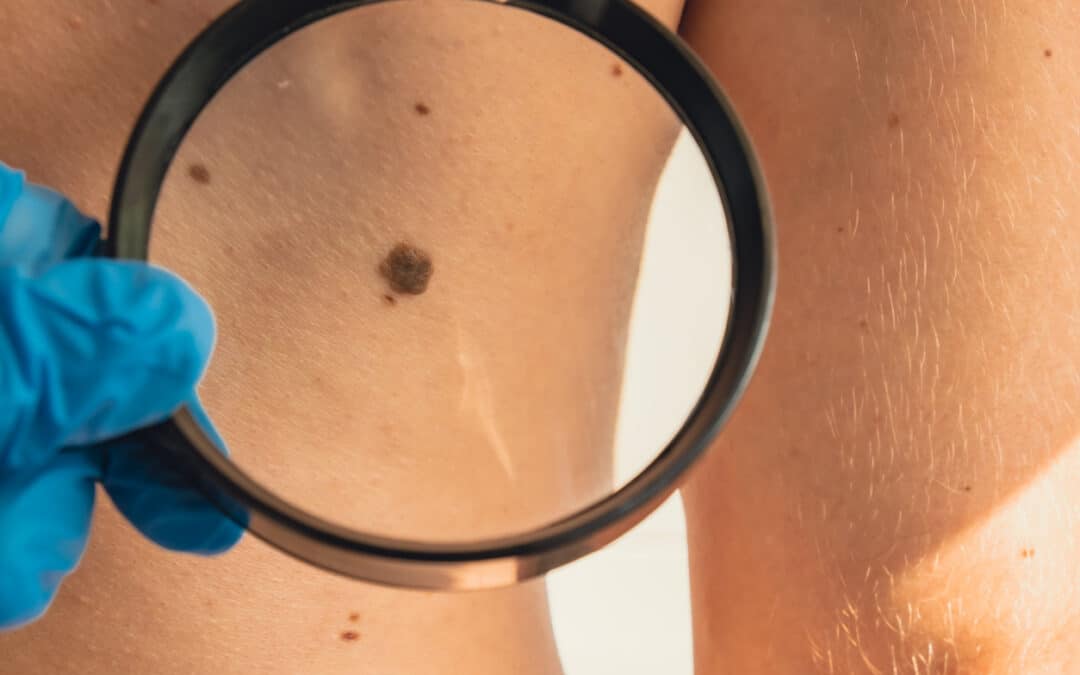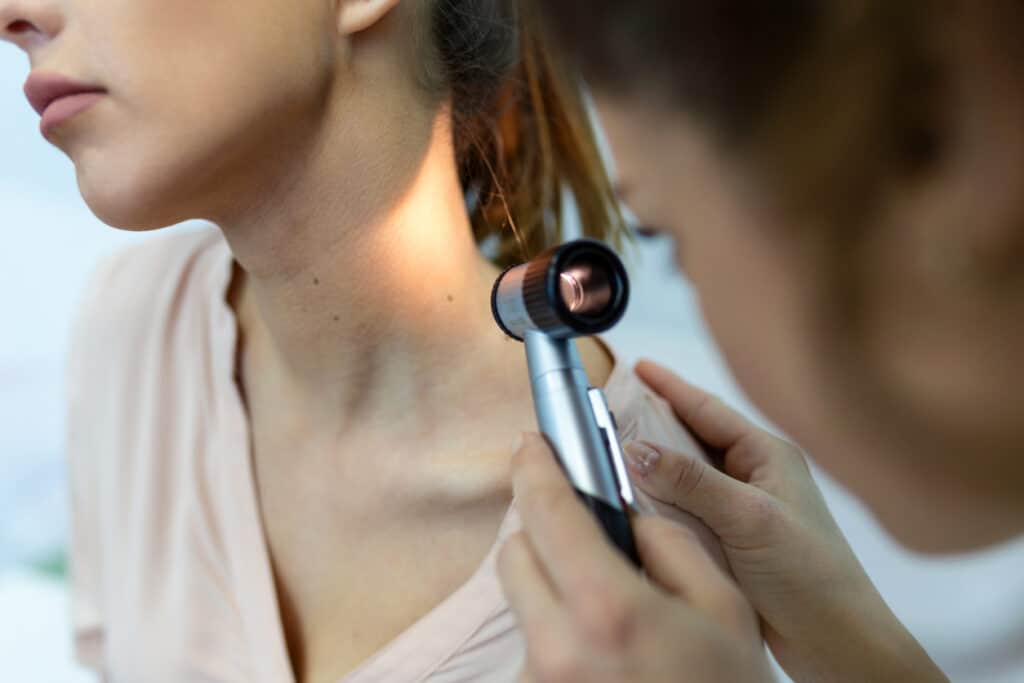Many of us have moles, freckles, and other spots on our skin, but have you ever wondered if a new or changing spot could be a sign of something more serious? In the United States, skin cancer is the most common form of cancer, and early detection is the single most important factor for successful treatment.
At White Rock Dermatology, we believe in empowering our patients with knowledge. Understanding the warning signs of skin cancer is crucial for catching it in its earliest, most treatable stages. That’s why we encourage regular self-exams and professional skin cancer screening to give you peace of mind.
The ABCDEs of Melanoma: What to Look For
Melanoma, while less common than other types of skin cancer, is the most dangerous. Learning the ABCDEs is a simple and effective way to monitor your moles and identify potential issues. If you notice any of these signs, it’s time to schedule a professional evaluation.
- A – Asymmetry: One half of the mole does not match the other half. Normal moles are usually symmetrical.
- B – Border: The edges are irregular, ragged, notched, or blurred. Benign moles typically have smooth, well-defined borders.
- C – Color: The mole has a mix of colors, including shades of tan, brown, black, blue, white, or red. A single, uniform color is a good sign.
- D – Diameter: The mole is larger than 6 millimeters (about the size of a pencil eraser). While melanomas can be smaller, this is a key indicator.
- E – Evolving: The mole is changing in size, shape, color, or elevation. Any change, or the appearance of a new symptom like itching or bleeding, is a red flag.
How Often Should You Perform a Self-Exam?
We recommend a full-body self-exam once a month. A good time to do this is after a shower, using a full-length mirror and a hand-held mirror to check hard-to-see areas like your scalp, back, and the bottoms of your feet. By familiarizing yourself with your skin, you’ll be able to spot any changes right away.
The Importance of a Professional Skin Cancer Screening
While self-exams are a vital first step, they are not a substitute for a professional skin cancer screening by a dermatologist. Our experts are trained to identify suspicious spots that you might miss. During a professional exam, we will:
- Thoroughly examine your entire body: We use specialized tools, such as a dermatoscope, to get a magnified view of moles and other spots.
- Identify areas of concern: If a spot looks suspicious, we may recommend a biopsy for further testing.
- Offer personalized advice: We will discuss your individual risk factors and create a plan for future screenings.
At White Rock Dermatology, we have extensive experience in the early detection and treatment of all types of skin cancer, including melanoma, basal cell carcinoma, and squamous cell carcinoma. Our team provides not only the expertise to diagnose these conditions but also a compassionate approach to care. Learn more about our comprehensive services on our Dermatology Services page.
Take Control of Your Skin Health
Don’t wait for a suspicious spot to appear. Proactive care is the best defense against skin cancer. Start your monthly self-exams today, and make an appointment for a professional skin cancer screening.
Contact us at White Rock Dermatology to schedule your next appointment. A few minutes of prevention could make a lifetime of difference.



Recent Comments